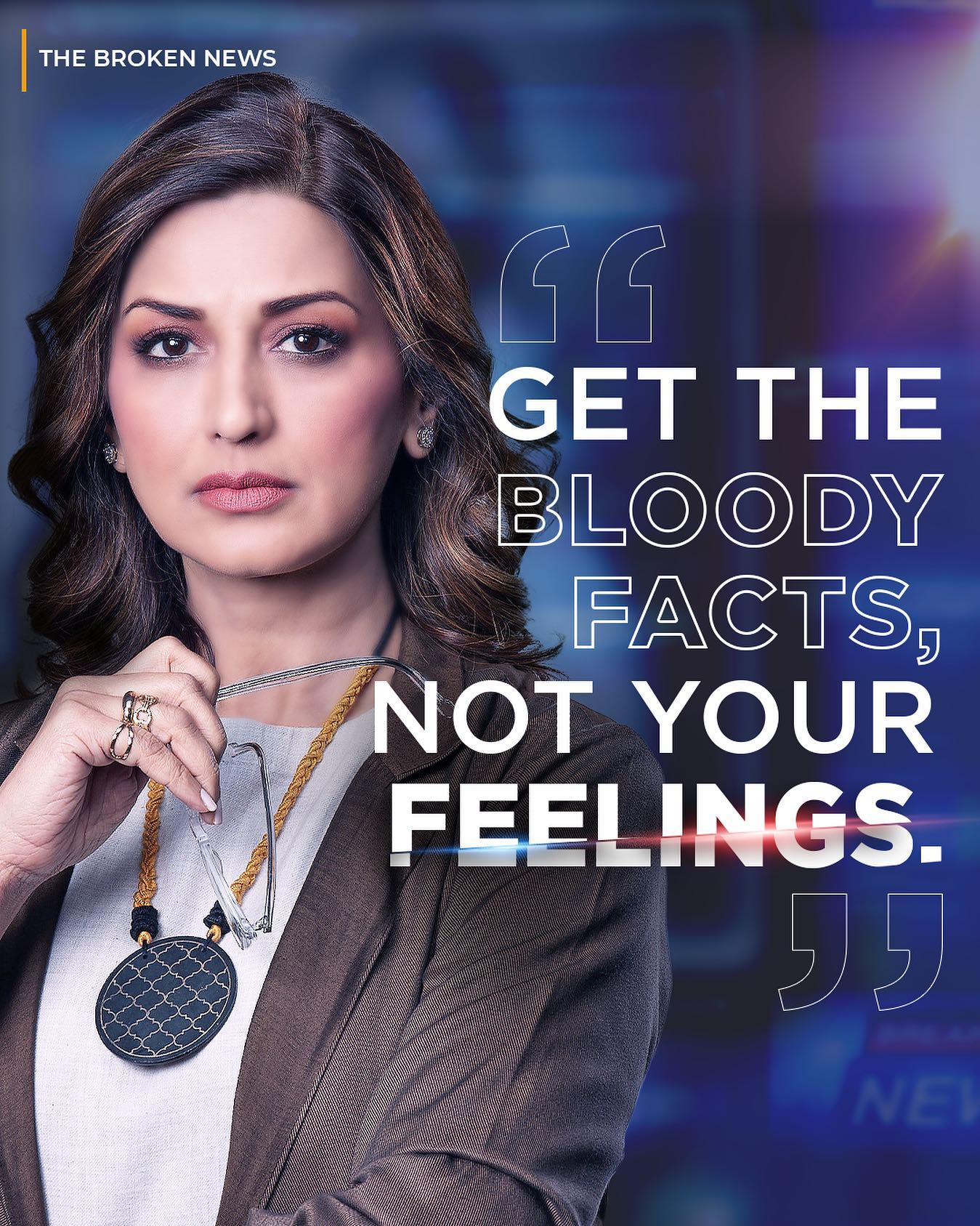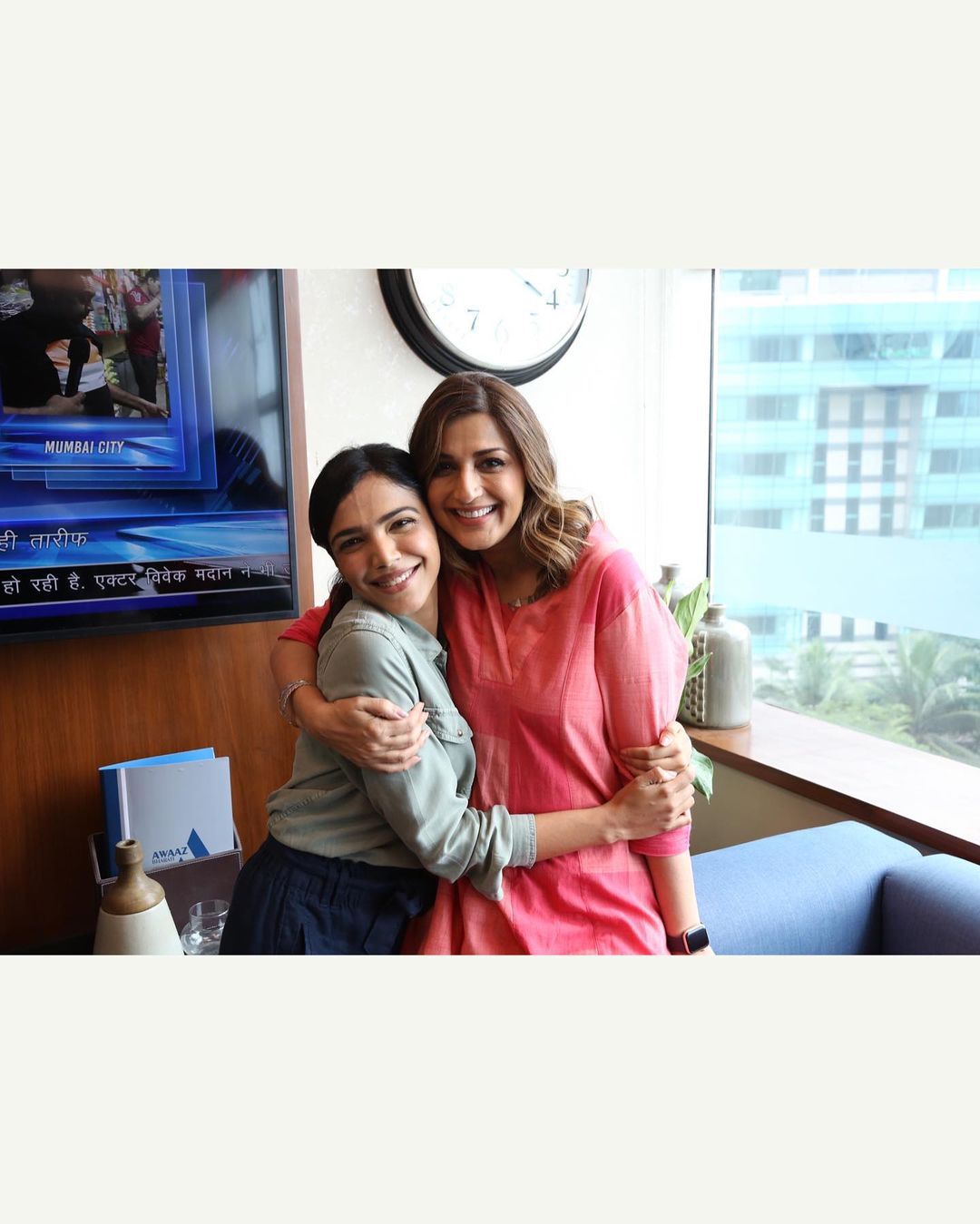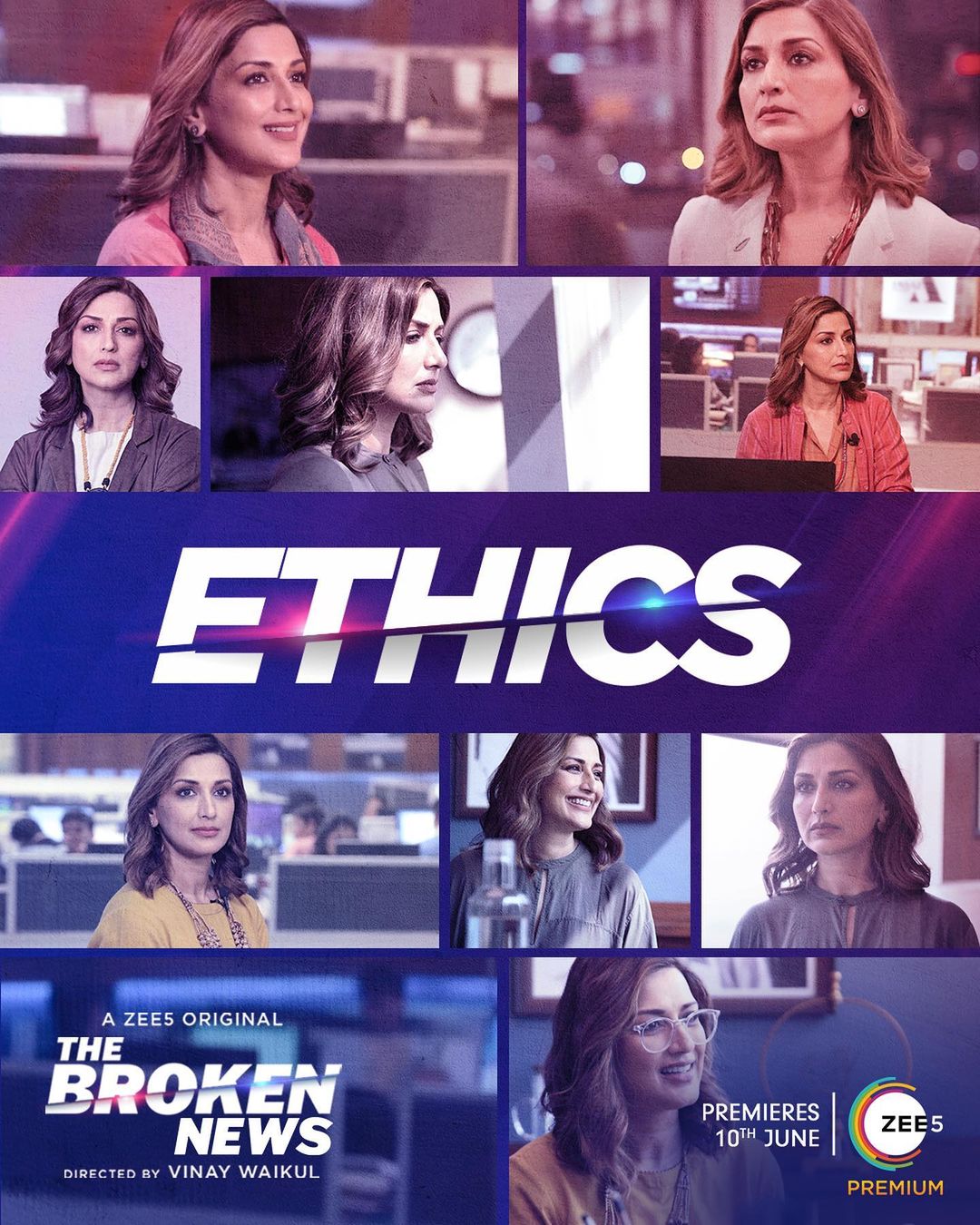
[ad_1]
After TV show ‘Ajeeb Daastaan Hai Ye’ ended in 2015, Sonali Bendre, who worked in multiple acclaimed and hit films like Diljale, Major Saab, Zakhm, and Sarfarosh, waited seven years before accepting her next acting project– a choice she says she is extremely happy about. When the ZEE5 series ‘The Broken News’ was first offered to her, she jumped at the opportunity. The Broken News also stars Jaideep Ahlawat and Shriya Pilgaonkar.
Speaking to us, the 47-year-old actress said playing Amina Qureshi on the show gave her a very similar reflection of her own lived experiences. In this interview, Bendre spoke at length about the thunderous response that ‘The Broken News’ has received, playing an ethical news anchor in the series, how her show doesn’t victimise its women characters or pitted them against each other, and why it’s important for women to continue to raise their voice against not getting enough space. Excerpts from the interview:
The Broken News has become one of the most-viewed Indian original series of 2022. Did you anticipate that it would get this kind of response?
No, not really. We actually didn’t really think that far ahead. I just hoped that it would be appreciated. I hoped that l would be able to pull it off and not stick out like a sore thumb with Jaideep and Shriya. But tracking everything that has happened is like a bonus. It’s amazing. I’m so happy.
The broken news accurately depicts why it’s necessary for power structures and imbalances to change and Amina played a significant role in hammering that message home. How did it feel to play a character so fearless?
It’s interesting that a lot of people tell me, ‘how was it to play a character that was fearless?’ But for me, I felt that Amina was fearful. And she was fearful of the change. She was fighting it for the longest time and trying to hold on to the old till it came to a point where she literally broke down and realised that it was about time for a change.
While filming The Broken News, did you channelise or revisit any of the experiences that you endured when you were younger and trying to establish yourself?
There was definitely a personal bit of me. But having said that, I think rather than the beginning, what was more interesting for me was Amina reaching a stage where she had reached in her career. When you look at Amina’s age, she is the Editor-in-chief, which would mean that she runs the newsroom. So to reach that age, there’s a definite hard work and a passionate life of work behind. She would have started as an intern somewhere then a reporter, correspondent, senior correspondent, deputy editor, etc. Plus, for a woman in this field, there would be so many glass ceilings that she must have broken and the kind of hours she must have put in. She has a lot of awards and is a well-known journalist, so for her to reach that stage and then could be at a crossroad where she needed to make a choice which could either make her or break her, I think that is something that I identify with, because whatever and how much of what we might do, we always come to those crossroads at some point in life where we have to kind of relook at things make our choices again. That is what I think identified with.

Amina Qureshi is an idealist and an upright journalist who believes in fighting the good fight. Similarly, there are so many young emerging journalists who believe that they will change society, but it’s not easy. And, we see what Amina goes through to stand by her principles. As an artiste, how do you navigate those situations?
I think that’s part of growing up. And I think that’s what my relationship with Radha is about. I remember treating it like that also where I will say that Radha is like a 20-year-old teenager or 20s kind of zone where you feel you’ll change the world and take on everything. And then life happens. It sounds very sad but it’s just that the reality is a bit different. It’s not necessarily that everything is going to be as you look at it. You will change the world but not in the way you think you will. And it’s growing up.
We always say that growing up is painful and it’s is like loss of innocence, where you believe that you can do anything. And then you realise that you might not be able to do that. And that’s growing up. And that is Amina and Radha’s relationship where I think Amina has grown up and knows that there will be times when you will want to make that story and you will want to take a certain stand, but you have to remember that you employ so many people and their livelihood depends on it. And that’s sort of a reality, Radha is not yet aware of. When you’re younger, you don’t have those responsibilities on you. But as you grow up those responsibilities you start taking on, that’s when you start looking at things differently. If we can as human beings grow up without becoming jaded or cynical, that’s an achievement. What drew me to Amina’s character was that she does grow up yet again in spite of the age that she is, she does grow up again. But I was hoping and I think I’ve managed to not make her jaded or cynical by being different.
Absolutely! I think what I love about Amina is that she’s not afraid for the other women or people around her to take up just as much space and to have a voice as loud as hers.
I’m so, so glad that you noticed that.
Yes, Amina is always there for Radha. She never feels insecure of her growth or the kind of stories that she brings. It was very empowering to see that.
I know, right? It’s so beautiful. I really liked that. And also other than that, this is exactly the conversation that Shriya, me and my director had where we said that it’s so typical that the moment there are two women, they are always pitted against each other and that was the one thing we didn’t want because it’s not true. And it should not be like that. In fact, Shriya and I always say that Radha and Amina are peak sisterhood.

On the other hand, Jaideep’s character always seems to dictate what needs to be done which kind of mirrors the reality that most men don’t really like taking instructions. Have you sort of experienced this in your career?
Yeah, I think it is part of our lives, upbringing and our subconscious. I do find myself kind of centering it down if I want to really make sure that something needs to be done. I kind of tone it in such a way that it sounds more like, ‘Could you please do it kind of zone rather than me saying that I want this done.’ I think that is somewhere most women go through that it’s in our subconscious that we are kind of trained to not really give instructions that the men are. Men do take it for granted and they just kind of shout out the instructions. But you see, women don’t really. And the moment, a woman who does that and they will say, ‘Oh, she’s so harsh.’ You have all sorts of names for women like that. I always said that Amina runs a very democratic news, and everybody has a say, and everybody has a voice in her newsroom. But the last voice is always hers. And that is what was my feeling on the newsroom always.
Amina and Radha are really rewriting the rules in terms of how female characters need to be treated. What do you think is the turning point for you, personally setting your own rules?
I haven’t really thought of it so much in that sense, because I think the whole point of one day at a time is to kind of go with the moment and enjoy the process. I like that kind of beautiful, bohemian way of thinking. I’m a Capricorn, very organised and planned. I definitely don’t want to fall into that pattern again. I don’t want to be so planned and organised. I want to leave things to chance. I want to let life surprise me a bit like it did with this show.

There are two scenes in the show that moved me. The first one is where Amina speaks to Gul near the elevator even after the latter decides to go on Dipankar’s primetime show. We don’t really show that kind of empathy for female victims in our stories. Also, the other one is the climax where both Amina and Radha decide not to expose Dipankar. Did you have any personal favourite scene?
Thank you so much for understanding the things that we’ve done very subtly. This is so amazing. I think the scene that I really like is when Radha comes back. I think for the first time, Amina shows her vulnerability to Radha, and I think their equation or relationship changes from there. That was a turning point in their relationship. And that’s why I like that scene very much.
Today, we have more and more actresses venturing into productions and behind-the-scenes jobs whether it’s direction or writing and hence we are seeing more women-led movies, stories where women have agency, but in the 90s things were completely different…
Yeah, on set, other than the female lead actor, the only other woman was her hairdresser. Now there are so many more women so it’s fun. That’s the change that I absolutely love. Once in a while towards a later part of my career, you will see somebody behind the camera, sometimes somebody handling clothes sometimes so it’s so amazing to see more and more women behind the camera now and the only other person that I used to see a lot was my sister-in-law Srishti. She was always behind the camera. And I thought she did that really well.
But how far do you think we have come in terms of better and equal representation of women and how much further do you think we still need to go?
I think the conversation is just about beginning so we have a long, long, long way to go. And I will say, let’s look at the positive and which is that at least the conversation has started. When I started working I didn’t even know it was not right to not have the same voice. I thought that was the way things work. So at least the girls who come in now, at least know that they need to have the same voice or they are not getting enough space. I was not even aware of that so I will say at least that has started. So I’m sure we will go ahead.
Read all the Latest News, Breaking News, watch Top Videos and Live TV here.
[ad_2]
Source link